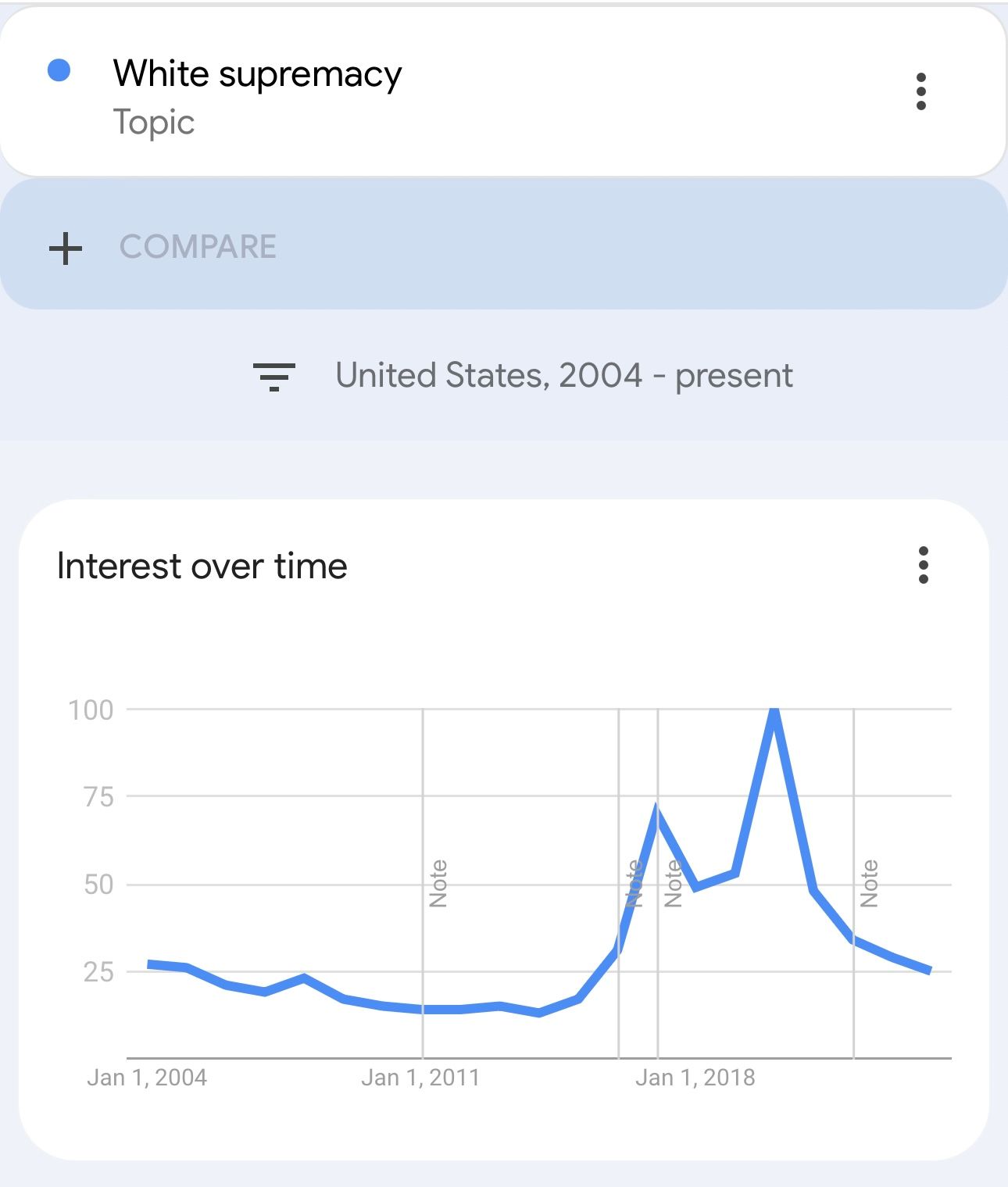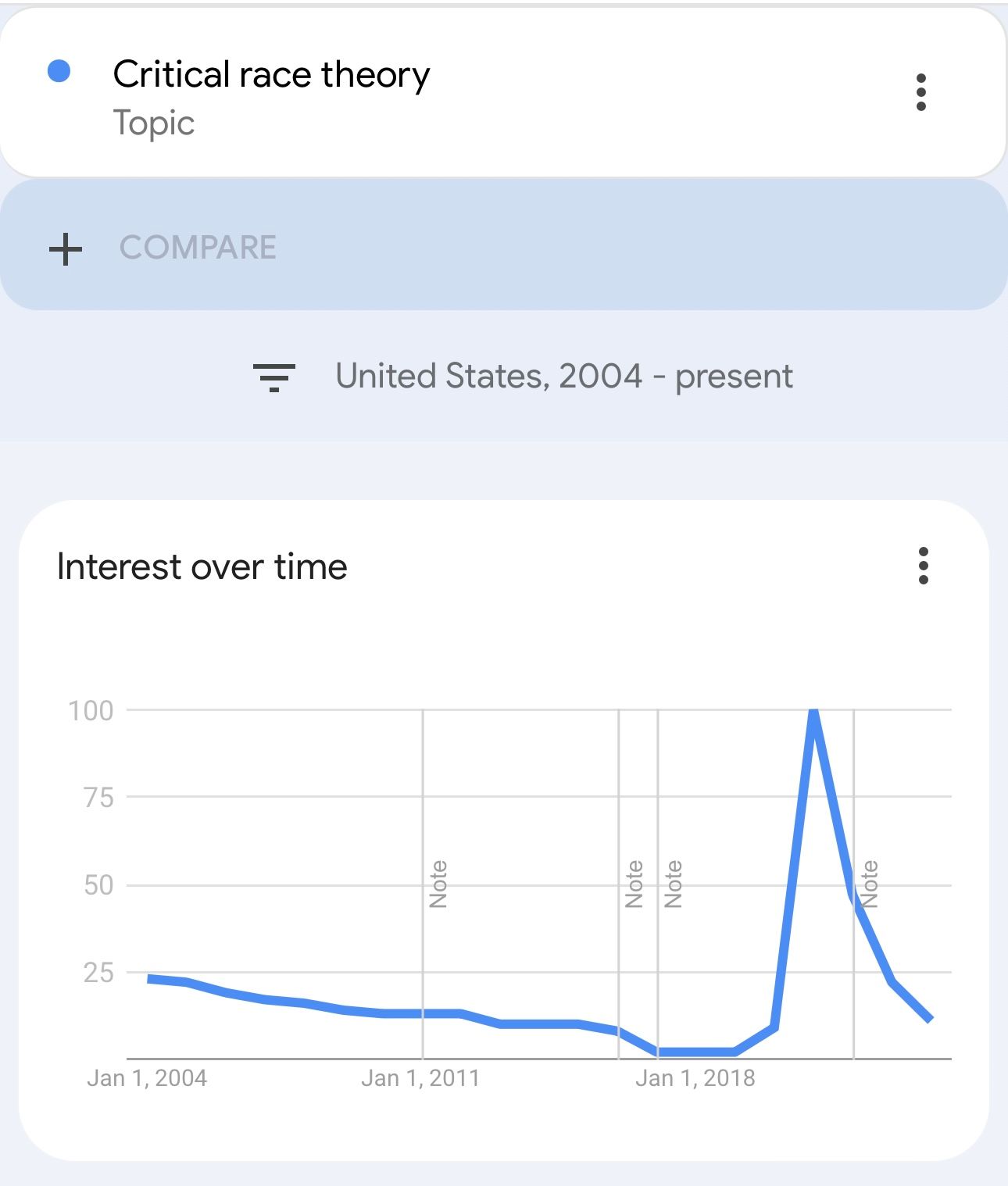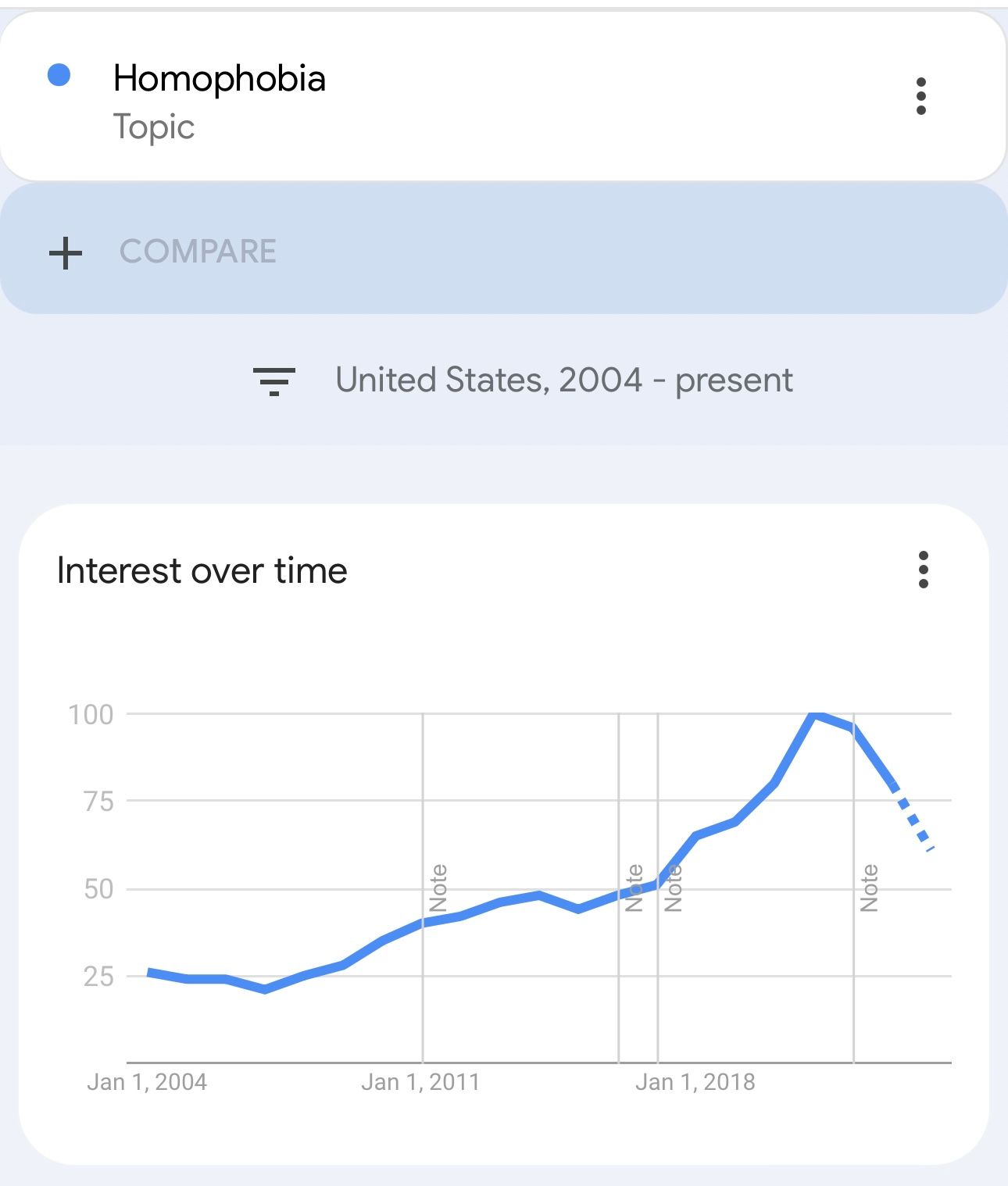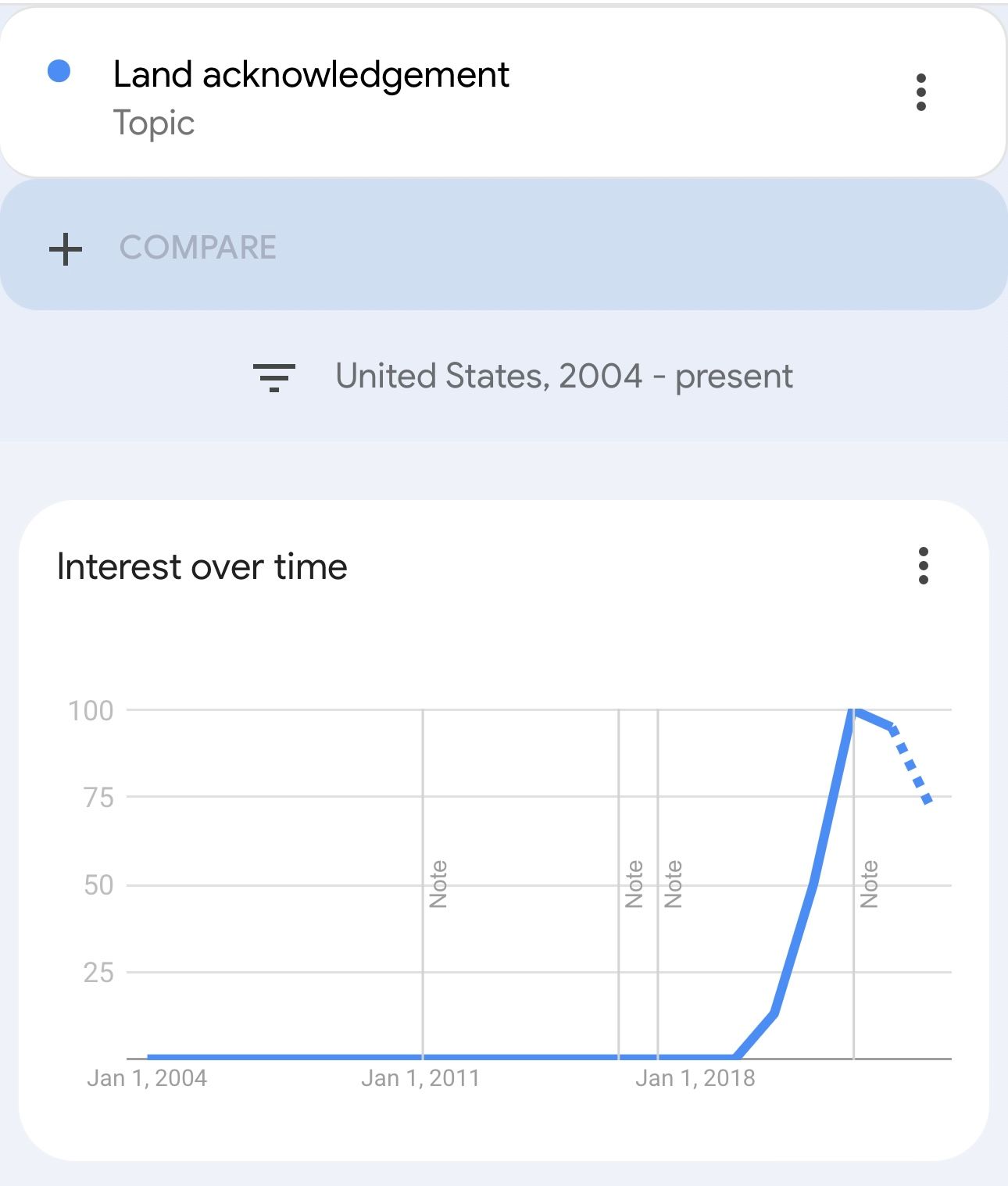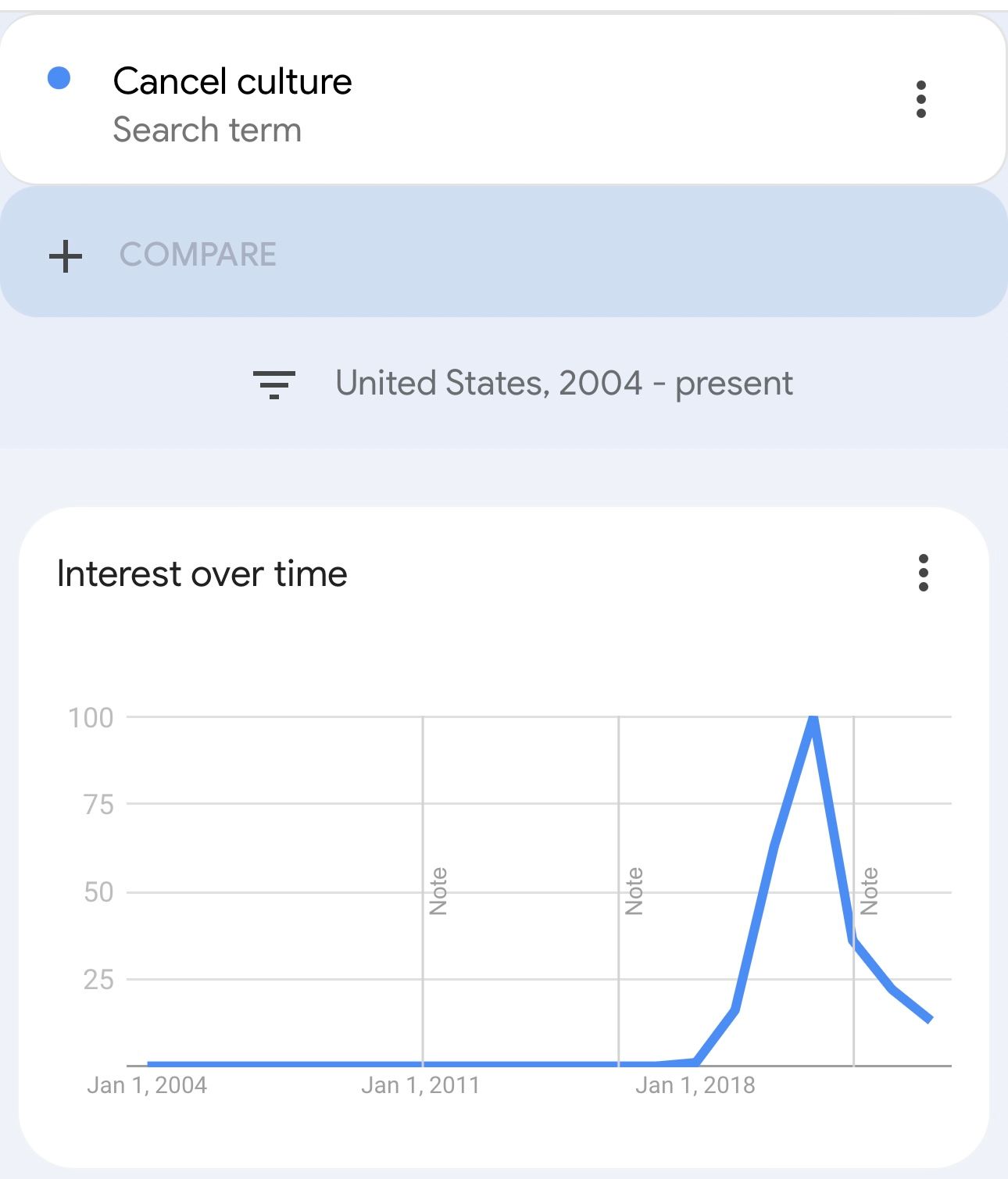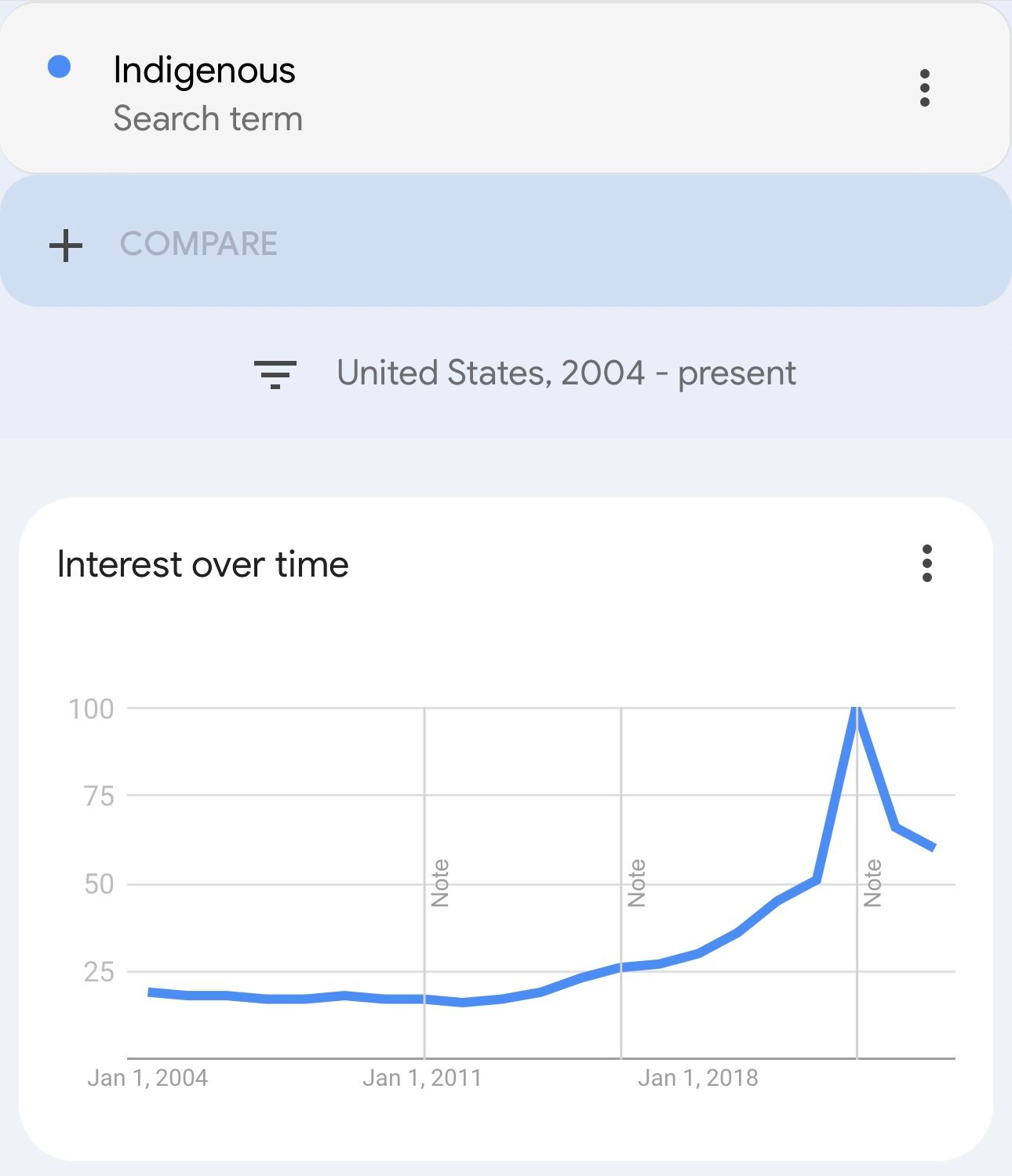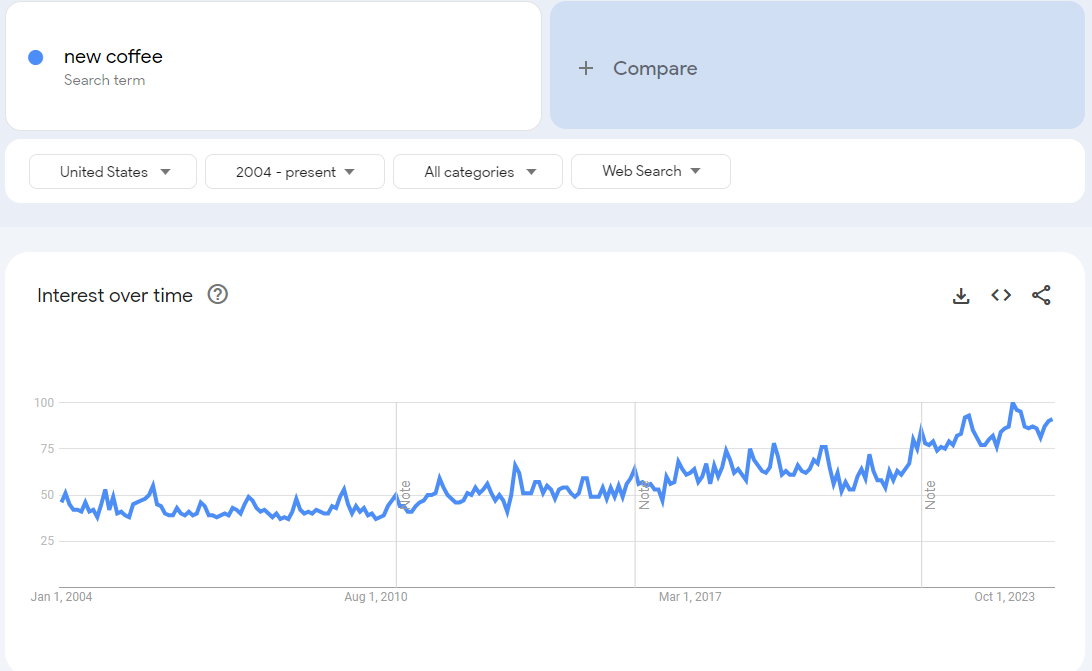Woke is here to stay
-
Sounds about right. The left is the contemporary conservatism, and it's its job to stay for the long term.
The fallout over Tony Dokoupil’s interview of Ta-Nehisi Coates shows that woke ideas have permeated the institutions.
I’ve been an editor at Persuasion for close to two years and, for me, it feels overdue to acknowledge what a jewel Persuasion really is. It’s astonishingly rare to have an outlet that’s completely, genuinely dedicated to free, independent thought and, at the same time, to well-researched, well-crafted, enduring work. The publication is a labor of love for all involved and I do hope that you’re willing to support us by becoming a paying member.
There’s an idea out there that “peak woke” has passed.
Earlier this year, The New York Times’ Michelle Goldberg penned her obituary for “wokeism,” claiming that it was on its deathbed. “Diversity, equity and inclusion departments, briefly prized, are being dismantled,” Goldberg wrote. “The era of content warnings and policing of microaggressions may have come to an end.”
The Economist finished burying the movement this fall, as only The Economist can—with a survey. “Discussion and espousal of woke views peaked in America in the early 2020s and have declined markedly since,” The Economist concluded.
In that context, the flap over Ta-Nehisi Coates’ recent CBS appearance seems to come from an earlier and almost outdated cultural moment.
During an interview with CBS Mornings, co-anchor Tony Dokoupil, who is Jewish, challenged Coates over his admittedly one-sided depiction of the Israel-Palestine conflict in his new book The Message. In his most incendiary lines, Dokoupil said that the book “would not be out of place in the backpack of an extremist” and asked Coates, “What is it that so particularly offends you about the existence of a Jewish state that is a Jewish safe place?”
Those lines were provocative but they were, also, part of a civil and substantive exchange. Coates has described Israel as an “apartheid” state and said that it’s “horseshit” to regard the Israel/Palestine conflict as complicated. Dokoupil’s challenge, then, was very much in line with what would be expected of a journalist—to provide the countervailing arguments that get short shrift in Coates’ book. “Why does [Coates] … leave out so much?” Dokoupil said. “Why leave out that Israel is surrounded by countries that want to eliminate it? Why leave out that Israel deals with terror groups that want to eliminate it? Why not detail anything of the First and Second Intifada, the café bombings, the bus bombings?”
Many CBS employees—not to mention much of the internet—took issue with Dokoupil’s line of questioning, and, in due course, the CBS brass caved to them. Dokoupil was hauled in for a meeting with CBS News’ standards and practices team and with the in-house Race and Culture Unit. The meeting, The New York Times reported, “focused on Mr. Dokoupil’s tone of voice, phrasing and body language during his interview.” Dokoupil also came in for rebuke during a staff meeting where CBS executives said that the interview failed to meet “editorial standards.”
Adrienne Roark, head of newsgathering at CBS News, said, in a puzzling bit of double-speak, “We will still ask tough questions. We will still hold people accountable. But we will do so objectively, which means checking our biases and opinions at the door.”
This is one of these spiraling media stories that one can grab onto at almost any spot—to discuss Coates’ controversial The Message; or the journalistic ethics of Dokoupil and CBS; or the ways in which Israel/Palestine almost inevitably tears apart any attempt to engage in civil discourse within the American media sphere. My point here is that a clash like Coates v. Dokoupil v. CBS News is Exhibit A for how the “woke wars” never went away, how if “peak woke” seems quieter than it did circa 2020, woke censoriousness is, contra Goldberg and contra The Economist, part of American institutional life, now maybe more than ever. The difference is just setting. Wokeism isn’t necessarily shouted out by protesting college students or Twitter mobs. It’s become part of the air that corporations breathe. The CBS executives’ admonitory statement directed at Dokoupil was, for instance, vintage wokeism. As Nellie Bowles, co-founder of the Free Press, put it in her interview with The Good Fight earlier this year, “Woke is like The Man … It’s won so fully in the institutions that, yeah, it’s The Man now.”
By way of example for the extent of wokeism’s hold, let’s take The Economist’s authoritative-sounding treatment of the decline of wokeism and then contrast the text of The Economist’s piece with the charts from their own research. “The results are consistent,” The Economist intones. “America has passed ‘peak woke.’”
But then look at the “decline” of “woke terms in print media”:
And look at the “decline” in those who believe that “racial differences in outcomes are mainly due to discrimination”:
And look at the “decline” in “woke terms in social science papers”:
What The Economist has done is obviously absurd—comparing rates of “wokeism” only to the 2020-2022 “woke peak” as opposed to the pre-woke era.
Similarly, the hard numbers given in the article’s text are similarly, uh, less than-fully-convincing. “The share of Americans who think that expressions of racist views should be restricted” rose sharply in the 2010s, reaching a peak of 52% in 2021 and “has since declined slightly, down to 49% in 2022,” The Economist writes—making more than they really should of a 3-point delta.
The Economist then claimed that academia has “shift[ed] away from wokery,” with woke terms rising 20% between 2010 and 2022 but then “remain[ing] stable” in 2023.
“Stable,” of course, is another way of saying that there’s actually no decline.
Meanwhile, The Economist does manage to acknowledge that, by several metrics, “wokeism” actually is advancing, particularly in corporate America. “The share of new job listings that mention diversity continues to grow, however, as ever more firms add boilerplate about inclusivity at the bottom of ads,” it writes. Inadvertently, then, The Economist’s article makes the case for a very different thesis—that “woke” is here to stay.
What’s going on is a bit subtle. The woke revolution already said its piece. The University of California endocrinology professor long ago apologized for saying “pregnant women” instead of “pregnant people” in class and “imply[ing]” that only biological women can give birth. The University of Michigan music professor long ago stepped back from teaching after showing Lawrence Olivier’s 1965 blackface film of Othello in class. The fear of being “canceled” remains pervasive. Wokeism, now, has been so internalized by the institutions that they barely need to articulate it—and employees have an acute danger sense of what not to talk about. Meanwhile, “peak woke” finds itself memory-holed. An article like The Economist’s depicts it as a temporary blip—a reaction to Trump’s election. Michelle Goldberg, in her New York Times op-ed, finds herself longing for the “progressive urgency” of the “peak woke” moment. A representative NPR piece, from 2023, frames the whole discourse as a Republican talking-point—something that has “been co-opted as a political slogan on the right … [and] could lead to violence.”
All of those dynamics emerged in the Dokoupil fracas. The admonishment by the CBS executives was a delectable bit of muddled corporate speak. “We are journalists and as hard as it is, this means we set our personal feelings and beliefs aside,” CBS executive Adrienne Roark said on the staff call. “Our job is to serve our audiences without bias or perceived bias, to provide objective news that we know and they know they can trust.”
The phrase “perceived bias” (what a wide-ranging idea!) gives the game away. It tips off that the issue with Dokupil had very little to do with journalistic standards and was instead that he strayed outside of the bounds of acceptable expression. By challenging a much-beloved author and his ferocious critique of Israel, he was violating unspoken tenets of the new woke corporate regime. The fact that it’s literally his job to argue with on-air guests seemed to matter not at all to the corporate brass.
A situation like what happened at CBS has become something very close to a new normal in institutional America. Some perspective, even a very radical one, gets favored. Any opposition to that favored perspective goes beyond the bounds of acceptable discourse and is suggestive of “perceived bias.” Corporate management, in its attempt to smooth things over, placates whatever the loudest voices are at the moment and punishes whomever espouses the less-favored perspective. At CBS News—which is a company full of journalists dedicated, at least in theory, to independence of thought—there’s some pushback, but in most companies, employees would simply know where the guardrails are and steer well clear of causing any offense.
It’s not placards or encampments or Twitter mobs but it’s no less insidious. “Peak woke” has profoundly changed the way that American institutions operate. If it’s impossible to have honest, challenging conversations at CBS News—a place whose whole reason for existence is to pursue journalistic truth—then it’s likely impossible to do so anywhere else in the American institutional structure. “Wokeism” may have peaked around 2020, but that doesn’t mean that it just disappeared afterwards. What happened was that there was a culture war and “wokeism” won.
-
In the article, each of these was followed by a chart showing a minor blip down from a peak that had been forming for many years:
But then look at the “decline” of “woke terms in print media”:
And look at the “decline” in those who believe that “racial differences in outcomes are mainly due to discrimination”:
And look at the “decline” in “woke terms in social science papers”:
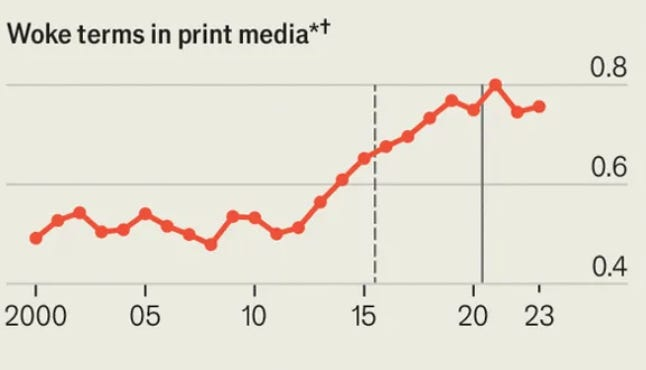
The other two are similar.
You can see that the charts don't actually support the notion that Trump accelerated anything. What happened in '11? Trayvon? Followed shortly thereafter by Michael Brown? Maybe others I've forgotten about. Those anecdotes and the moral panic they generated were the initial snowball that generated the landslide.
-
Some info about CBS and their internal hand wringing about that interview:
Link to videoCBS staffers were crying in meetings discussing the interview; CBS briefly considers bringing in a DEI professional grief counselor, until they see his social media in which he is clearly a wingnut, what a shocker.
-
Regarding presidents and their responsibility for the woke moral panic, obviously Obama was in a position to talk the culture off the ledge, but he chose to give it a push instead.
@Horace said in Woke is here to stay:
Regarding presidents and their responsibility for the woke moral panic, obviously Obama was in a position to talk the culture off the ledge, but he chose to give it a push instead.
The greatest opportunity in race relations since MLK and Obama blew it
-
In the article, each of these was followed by a chart showing a minor blip down from a peak that had been forming for many years:
But then look at the “decline” of “woke terms in print media”:
And look at the “decline” in those who believe that “racial differences in outcomes are mainly due to discrimination”:
And look at the “decline” in “woke terms in social science papers”:

The other two are similar.
You can see that the charts don't actually support the notion that Trump accelerated anything. What happened in '11? Trayvon? Followed shortly thereafter by Michael Brown? Maybe others I've forgotten about. Those anecdotes and the moral panic they generated were the initial snowball that generated the landslide.
-
Also ‘woke’ has been festering in academia for decades. That’s concerning in itself, but the spillover into the broader culture matters much more. I think when people say ‘we’ve passed peak woke’ they mean the broader culture, it’s not a claim that the sociology departments have reformed themselves.
-
-
I don't actually know what "trend" means or how it relates to search volumes. But I'll stand by my main point that you'd have to provide a convincing argument that the quantity of "woke" terms in new writing isn't a good way to measure how entrenched the ideas are in the culture.
-
@jon-nyc said in Woke is here to stay:
An example - homophobia as a topic vs a search term.
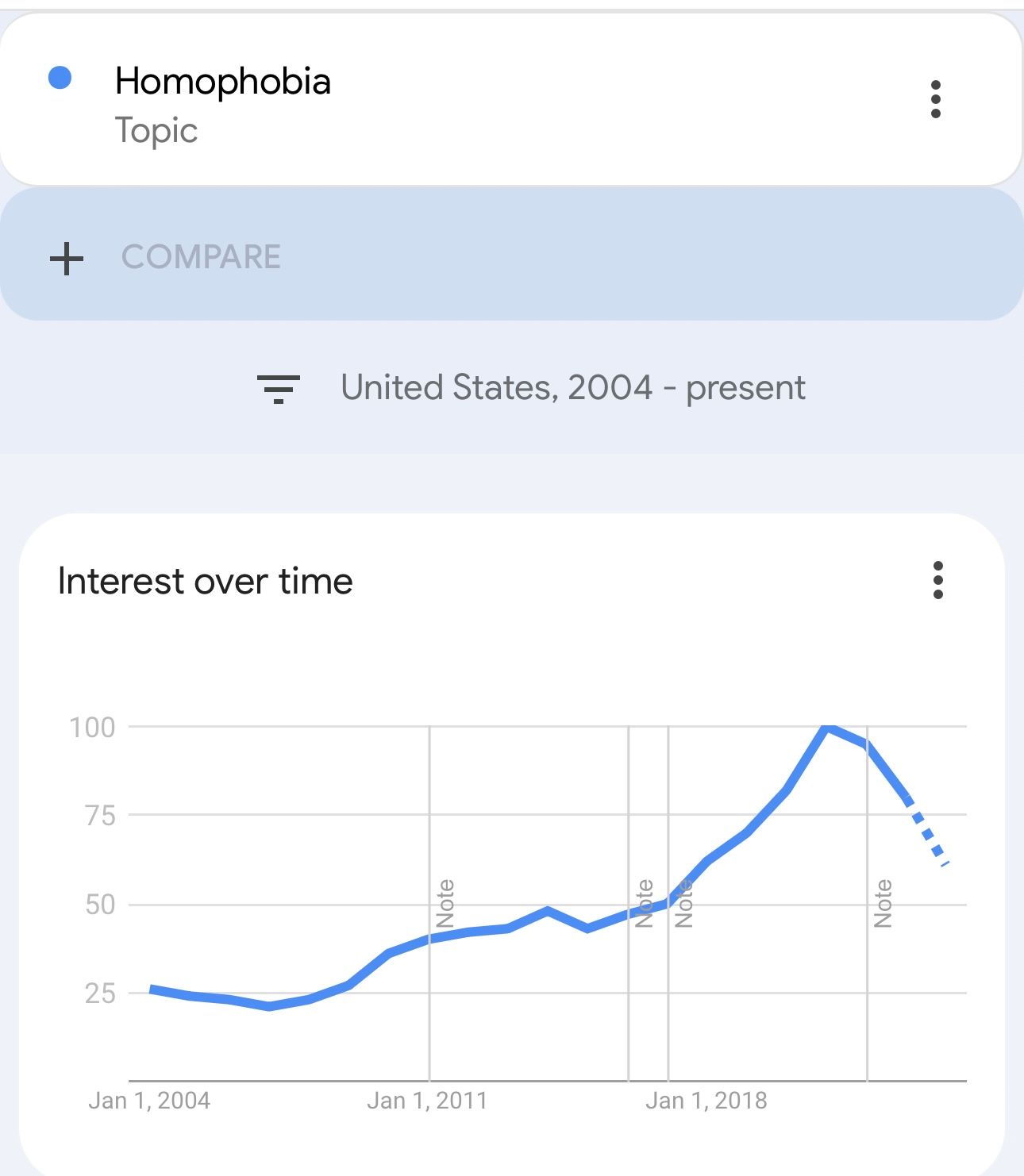
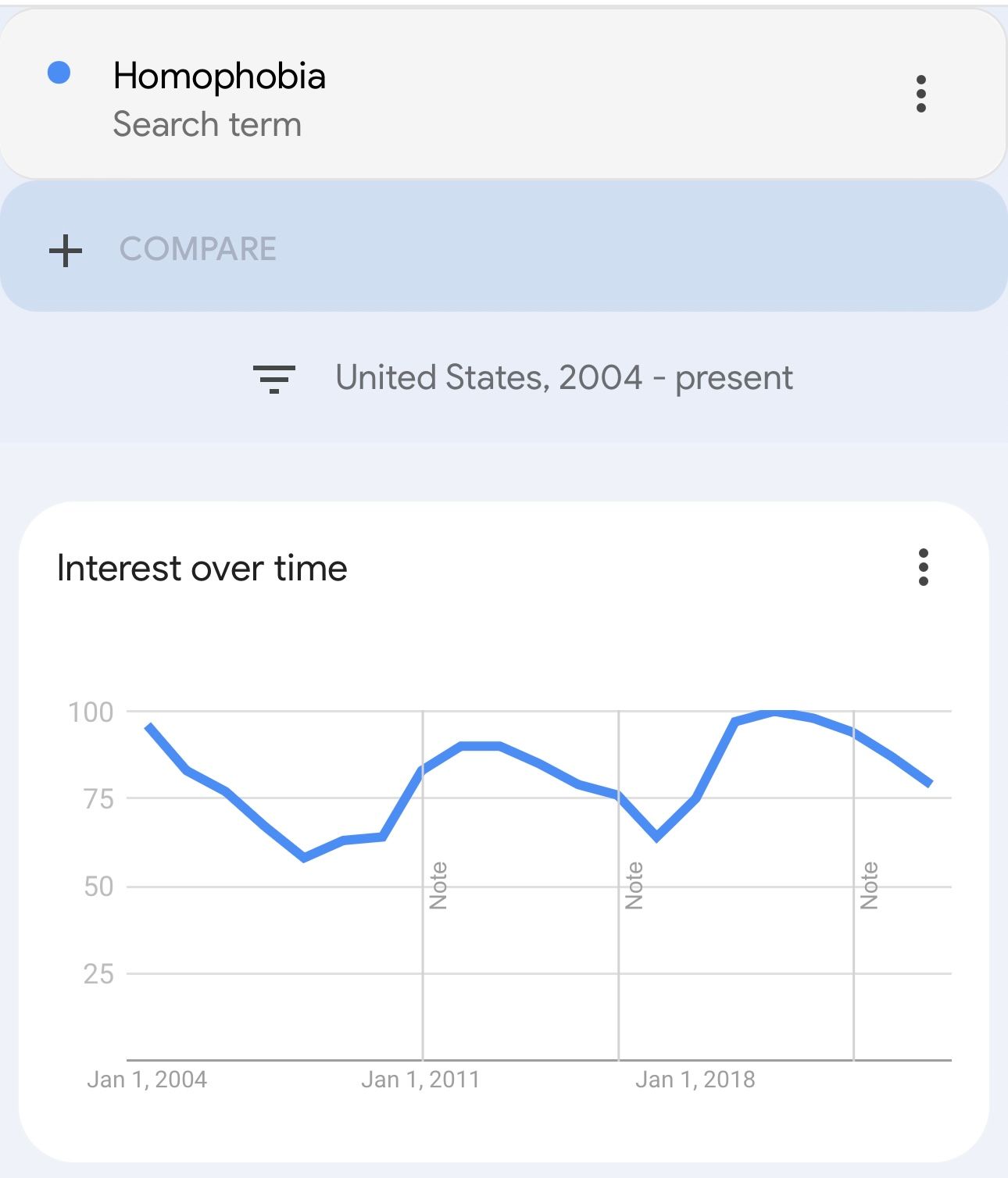
I'll tell you what, you choose a metric now, and if Trump wins, we'll revisit it in a couple years to see if your prediction of a spike in that measure has become reality.
-
Just kidding, you'll be in a concentration camp if Trump wins, so we won't be able to settle that, unless the camp emissaries can bargain with Trump's fascist regime for internet access, provided to the sole victor in the pit fighting arenas. I expect you to win, and I expect you to use your prize of five minutes online time to settle this particular score on TNCR.
-
-
How about using equity?
-
@jon-nyc said in Woke is here to stay:
An example - homophobia as a topic vs a search term.


I'll tell you what, you choose a metric now, and if Trump wins, we'll revisit it in a couple years to see if your prediction of a spike in that measure has become reality.
@Horace. These probably all correlate pretty well. A resurgence of wokeness in the culture would probably be visible in most of these. Some can get goosed by world events independent of Trump or US politics. Eg ‘settler colonialism’ peaked in late 23.
Hopefully we will never know what a second Trump term would have brought.
